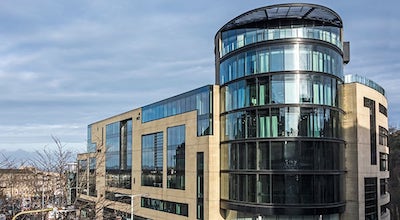By Mark McSherry — Edinburgh-based fund management group Baillie Gifford revealed on Wednesday that its assets under management and advice have fallen roughly 40% to £216 billion since the start of 2022 amid the brutal global sell-off in technology and growth stocks, which have featured heavily in the firm’s portfolios.
Baillie Gifford had previously reported assets under management and advice at December 31, 2021, of roughly £360 billion.
The disclosure came in the annual results of the Baillie Gifford Japan Trust plc for the year to August 31, 2022, with the £940 million fund reporting that its net asset value total return was -16.3% compared to the -3.9% total return for the benchmark TOPIX index.
The trust’s share price fell 23.8% over the year.
Despite the performance, the fund declared a final dividend of 9p per ordinary share — a 50% increase on the prior year.
Baillie Gifford Japan Trust’s objective is to achieve long term capital growth, and its NAV total return of 22.8% over the five year period remains ahead of the benchmark return of 19.8%.
The fund’s NAV total return has increased 387.7% over 10 years, compared to the 257.8% of the TOPIX index.
The trust is currently managed by Matt Prett and Praveen Kumar.
The managers’ report of the fund read: “The past 12 months have been a difficult time for investors.
“Despite Covid beginning to fade from a pandemic into an endemic virus, new challenges have emerged.
“Russia’s war on Ukraine has brought significant suffering and destruction to Ukraine and the range of possible outcomes from here is wide.
“Who would have thought that we would pivot from a pandemic to conversations around the differences between strategic and tactical nuclear weapons?
“Alongside this there has been significant disruption to energy markets and high inflation numbers in many developed markets.
“Asset prices have been impacted as the spectre of stagflation has preyed on investor minds.
“Meanwhile Japan has experienced the shock of the assassination of highly influential former Prime Minister Shinzo Abe.
“Against this backdrop, the share prices of the companies that the Japan Trust invests in have had, in aggregate, a setback.
“The NAV total return of your company was -16.3% compared with the -3.9% fall in the TOPIX index in Sterling terms.
“We continue to believe that it is more appropriate to look at longer-term numbers. Over five years the NAV total return has increased by 22.8%, and by 387.7% over 10 years.
“This compares to increases in the TOPIX index of 19.8% over 5 years and 257.8% over 10 years.
“Our bias towards smaller companies and higher growth companies have been unhelpful over the last year.
“Additionally, given the widespread share price falls, being geared was also unhelpful.
“Four companies subtracted at least 1ppt from the return. These were Rakuten (-1.5%), Raksul (-1.4%), CyberAgent (-1.0%) and Mercari (-1.0%).
“Each of these companies operates in the internet area and they share the common feature of investing heavily to try and seize future opportunities.
“Rakuten has been building a new mobile phone network in Japan, funded by its profitable e-commerce and online financial service operations.
“Raksul is a young company involved in online printing, logistics on demand and online advertising.
“CyberAgent has been investing heavily in AbemaTV, perhaps best described as a cross between YouTube and Netflix, funded by its profitable advertising and gaming businesses.
“Finally, Mercari provides a platform for consumer-to-consumer second-hand good sales and is investing heavily in its US operations, funded by its more established and profitable Japanese operations …
“In total we bought eight new holdings and sold 10.
“As is typical the new holdings spanned a range of growth opportunities, from quality long-term franchises such as Nintendo (games consoles), Shiseido (skincare) and Pigeon (baby bottles) to newer high growth companies such as Oisix (meal kit delivery), Freee (cloud-based accounting) and finally eclectic growth companies such as Chugoku Marine Paint (anti-fouling ship paint), Shima Seiki (knitting machines) and Seria (bargain retail).
“These were funded by sales of existing holdings where conviction has waned. Overall turnover was 14.5%, meaning that 85.5% of the portfolio was not changed from the previous year …
“Whilst it has been a difficult twelve months for the share price of the company, it is perhaps worth re-iterating three sources of comfort.
“First, 85% of your company is the same as the year before which means that our processes have been operating in a steady fashion.
“Second, in aggregate those companies have been paying out increased dividends (and doing significant share buybacks) suggesting both that cash is available and that directors have confidence in the future.
“Finally, given the growth profile of your company’s portfolio it is striking that it does not trade at a meaningful premium to the Japanese market.
“The future is always uncertain, and volatility is inevitable, but in the past your company has always managed to recover from setbacks and we believe that investing in quality growth companies will continue to be an effective way of preserving and growing wealth over the long term.”
